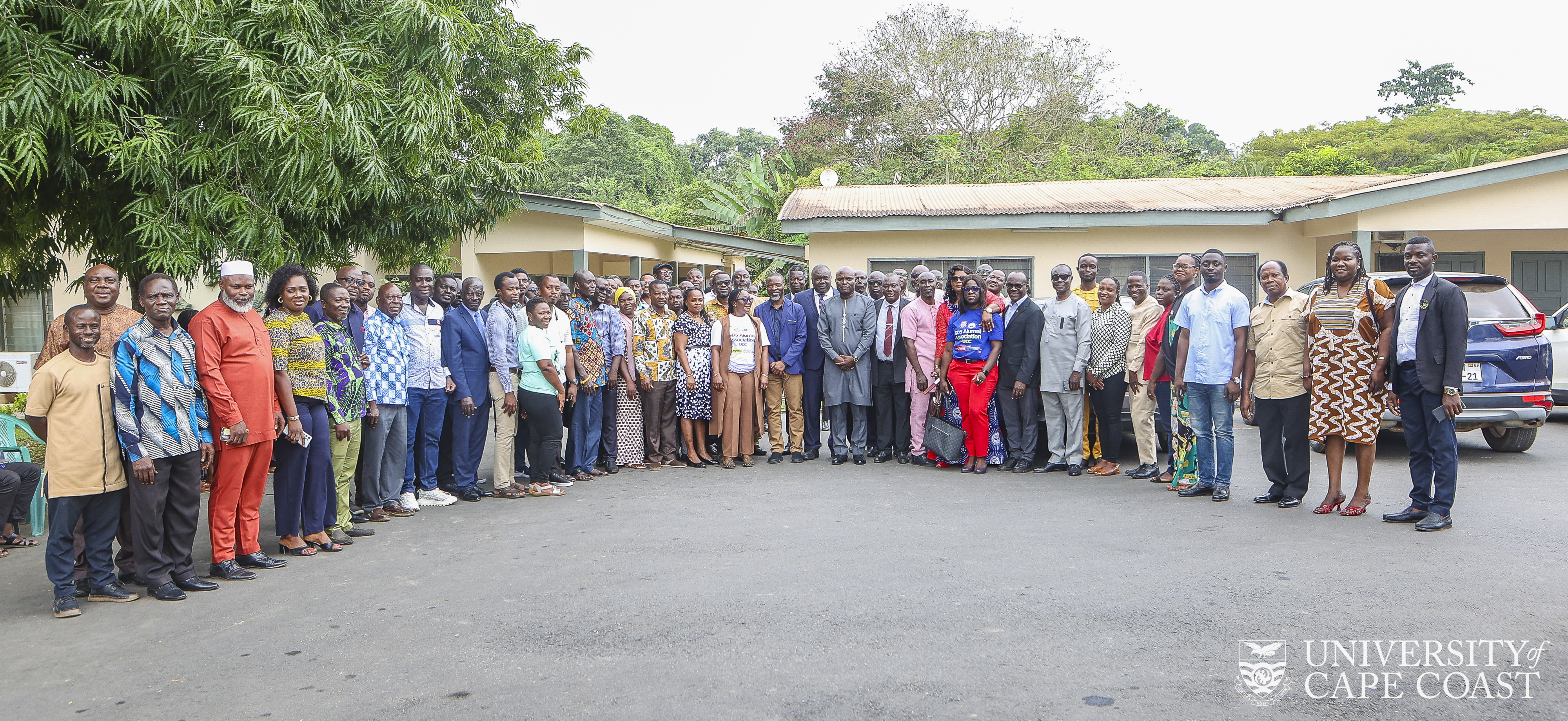The School for Development Studies (SDS) at the University of Cape Coast (UCC) has officially launched its alumni association with a roundtable on key economic issues.
Speaking at the event, the Provost of the College of Humanities and Legal Studies (CHLS), Prof. Daniel Agyapong, described alumni as “a very important connecting rod of universities”, highlighting their ability to facilitate industry and academic relations.
He emphasised the significance of the launch, noting that it would strengthen ties between past and present students for mutual growth.
The Dean of SDS, Prof. Emmanuel Y. Tenkorang, giving the school’s history, said it was established in 1968 with four departments and has currently expanded to run not only academic programmes but also career development programmes.
The President of the SDS Alumni Association, Mr. Stephen Adjei, who led the launch, described the occasion as “a milestone marking a great activity uniting the past and the present.” He encouraged alumni to “build a network that inspires and empowers.”
The Provost, Dean, and Executives of the Association cut a cake to launch the association.
Mr. Moses Setiga, Head of Systems Administration at the Directorate of Information and Communication Technology (DICT-UCC), showcased the SDS Smart Classroom initiative, which the Association intends to establish to facilitate learning. He outlined its advantages, including “interactive and multimedia-rich learning and seamless collaboration and communication.”
A Lecturer at the Department of Sociology and Anthropology, Dr. Edgar Takyi Akonor, encouraged alumni to support the Smart Classroom project, noting that the estimated cost stands at GH₵42,000.
A round table on the theme, “Moderating Public revenues to exchange Rate in Ghana: Implications for Cost of Living”, featured Dr. Philip Abradu-Otoo, the Director of Research at the Bank of Ghana, Prof. Francis Enu-Kwesi, and the Dean of the School of Business, Prof. Samuel Kwaku Agyei.
Dr. Abradu-Otoo explained complex aspects of monetary policy using a simple flowchart, covering exchange rate volatilities, the black box structure of the economy, consumer behaviour, pricing expectations, competition, and the role of the central bank.”
The panel explored the implications of monetary tools on the cost of living and economic growth.
The moderator of the session, Prof. Francis Enu-Kwesi, an associate professor at the Department of Integrated Development Studies, said the platform had brought academic expertise and real-world economic policy together in ways that could inform national development.
Source: Documentation and Information Section-UCC


